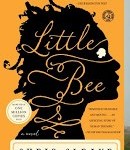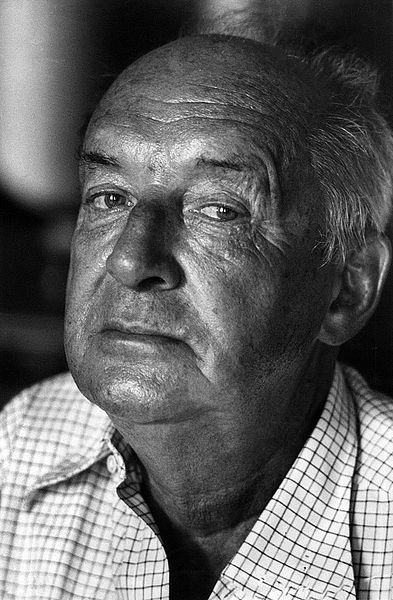 Vladimir Vladimirovich Nabokov is considered of the world’s greatest writers. Born on April 22nd, 1899 in Saint Petersburg to a noble and wealthy family, he spoke Russian, English, and French from an early age. Nabokov graduated from the University of Cambridge and met his wife Vera while living in Berlin. In 1940 they fled from war-torn Europe to the United States with their only son, Dmitri. Nabokov taught at Wellesley College and Cornell University for many years, and his students included Ruth Bader Ginsburg and Thomas Pynchon. He was fascinated by lepidoptery (the study of moths and butterflies) throughout his life and spent time working at the American Museum of Natural History and Harvard’s Museum of Comparative Zoology. In the early 1960s, he and his wife returned to Europe, where they stayed until his death in 1977.
Vladimir Vladimirovich Nabokov is considered of the world’s greatest writers. Born on April 22nd, 1899 in Saint Petersburg to a noble and wealthy family, he spoke Russian, English, and French from an early age. Nabokov graduated from the University of Cambridge and met his wife Vera while living in Berlin. In 1940 they fled from war-torn Europe to the United States with their only son, Dmitri. Nabokov taught at Wellesley College and Cornell University for many years, and his students included Ruth Bader Ginsburg and Thomas Pynchon. He was fascinated by lepidoptery (the study of moths and butterflies) throughout his life and spent time working at the American Museum of Natural History and Harvard’s Museum of Comparative Zoology. In the early 1960s, he and his wife returned to Europe, where they stayed until his death in 1977.
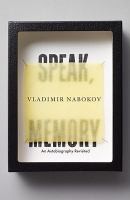 Nabokov’s family history is complex, dramatic, and tragic. He wrote about his early years in Speak, Memory, a memoir of his youth and life up until moving to America with his wife and son. Don’t be dissuaded – this not a dry autobiography. Each chapter (most of which were first published as individual essays in the New Yorker) covers a different subject with recollections that combine to create a rich exploration of memories in elegant prose.
Nabokov’s family history is complex, dramatic, and tragic. He wrote about his early years in Speak, Memory, a memoir of his youth and life up until moving to America with his wife and son. Don’t be dissuaded – this not a dry autobiography. Each chapter (most of which were first published as individual essays in the New Yorker) covers a different subject with recollections that combine to create a rich exploration of memories in elegant prose.
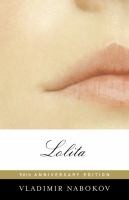 Nabokov’s most famous novel, of course, is Lolita, often found on various “best novels” lists. Nabokov wrote the novel in English over a period of five years, and later translated it into Russian himself. Controversial from the beginning, the book was initially banned in the UK and France. It’s written from the the view of unreliable narrator Humbert Humbert, who becomes obsessed with his landlady’s 12-year-old daughter Dolores, whom he nicknames Lolita. The novel has comedy, tragedy, and wordplay, and can be considered Nabakov’s love song to the English language.
Nabokov’s most famous novel, of course, is Lolita, often found on various “best novels” lists. Nabokov wrote the novel in English over a period of five years, and later translated it into Russian himself. Controversial from the beginning, the book was initially banned in the UK and France. It’s written from the the view of unreliable narrator Humbert Humbert, who becomes obsessed with his landlady’s 12-year-old daughter Dolores, whom he nicknames Lolita. The novel has comedy, tragedy, and wordplay, and can be considered Nabakov’s love song to the English language.
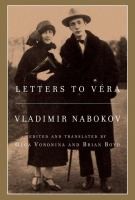 Letters to Vera, edited and translated by Olga Voronina and Brian Boyd, is composed of Nabokov’s written messages to his wife Vera over the course of their relationship, which lasted half a century. Vera was not only Nabokov’s wife, but his devoted partner in editing, translating, and solidifying his literary legacy. Reading these letters gives a glimpse into the more intimate and personal life of Nabokov – if only Vera hadn’t destroyed all the letters she wrote in return!
Letters to Vera, edited and translated by Olga Voronina and Brian Boyd, is composed of Nabokov’s written messages to his wife Vera over the course of their relationship, which lasted half a century. Vera was not only Nabokov’s wife, but his devoted partner in editing, translating, and solidifying his literary legacy. Reading these letters gives a glimpse into the more intimate and personal life of Nabokov – if only Vera hadn’t destroyed all the letters she wrote in return!

